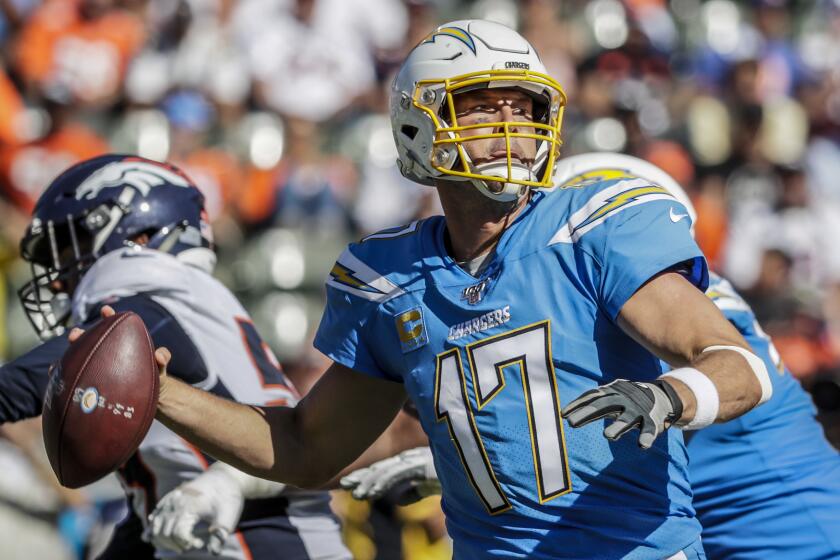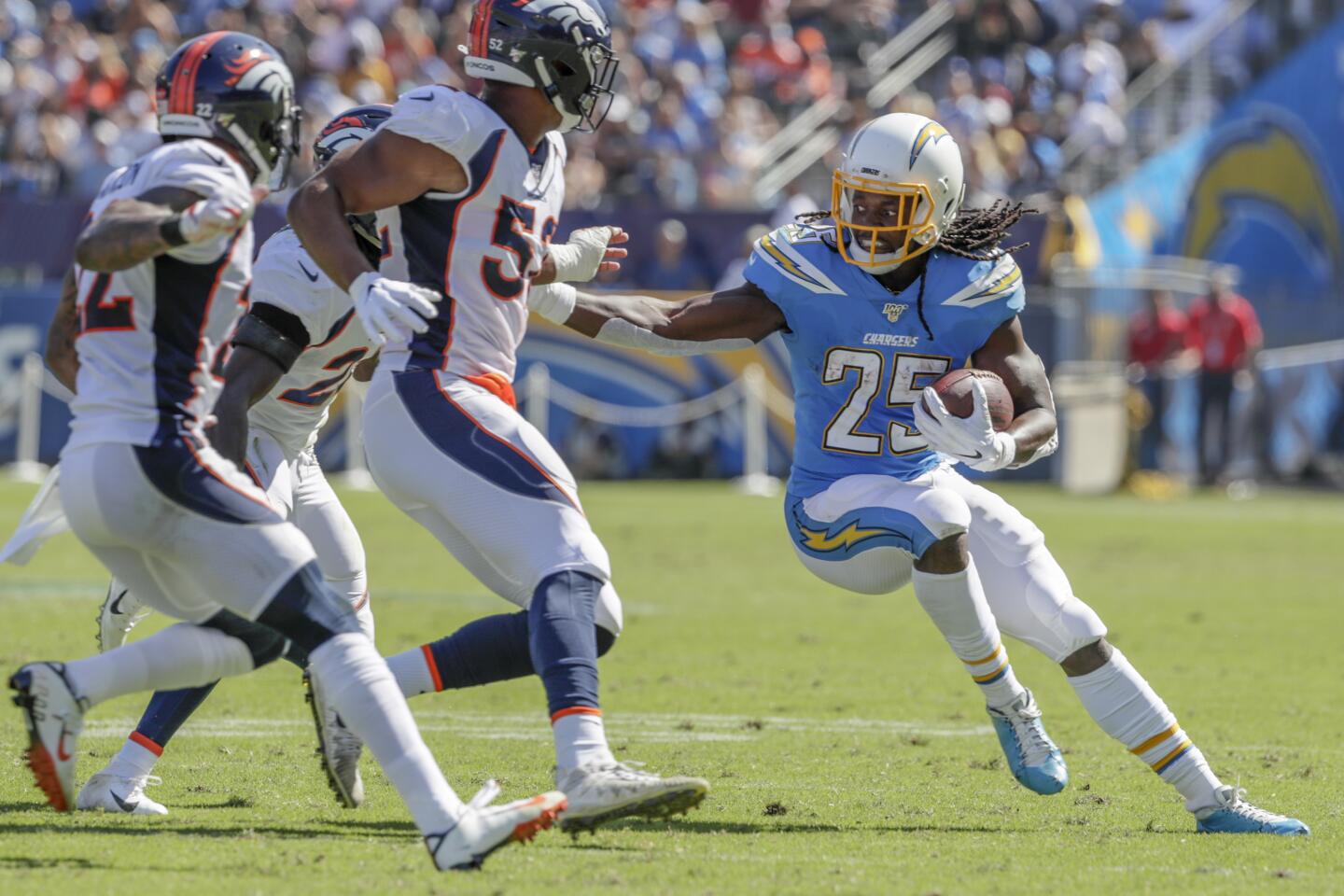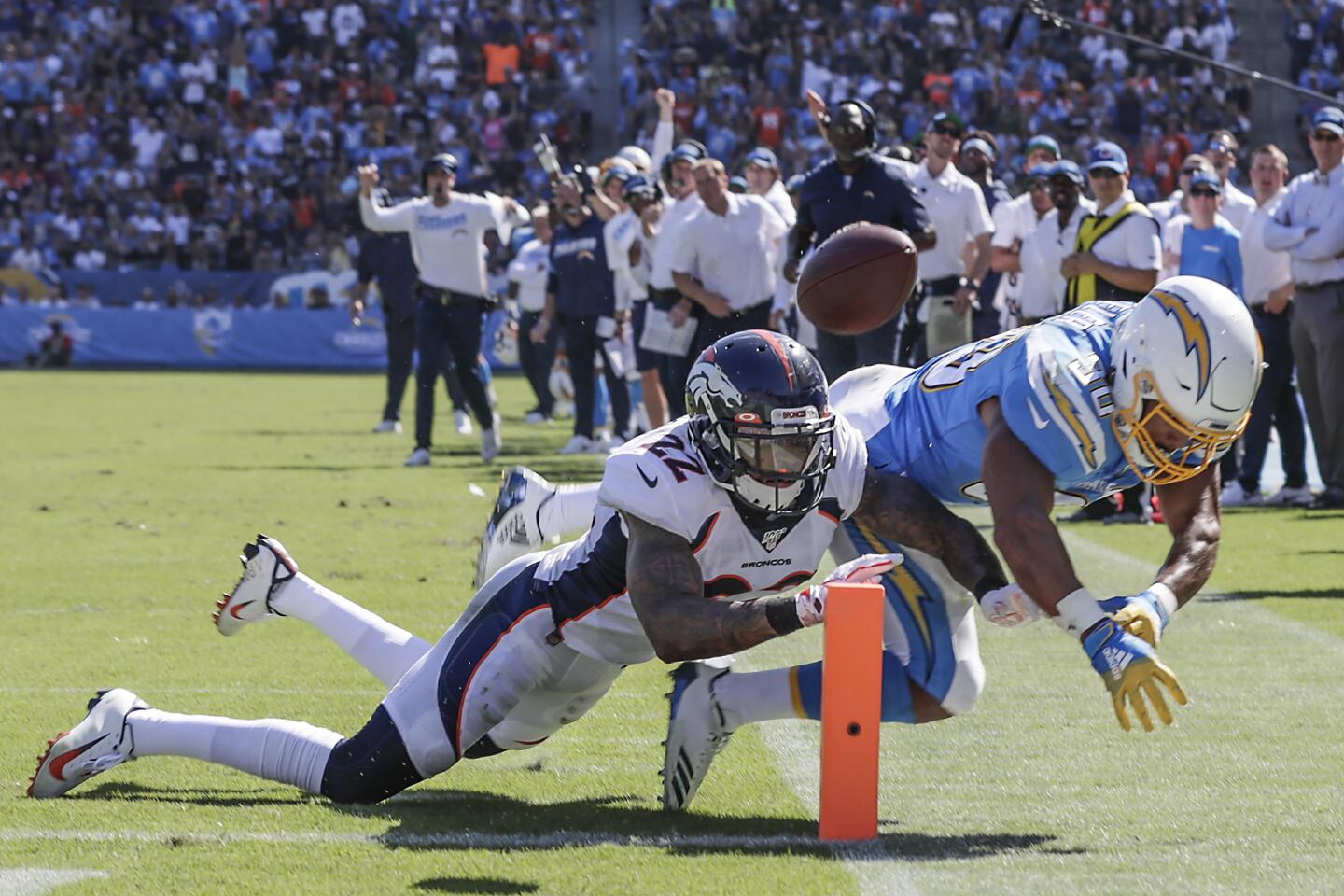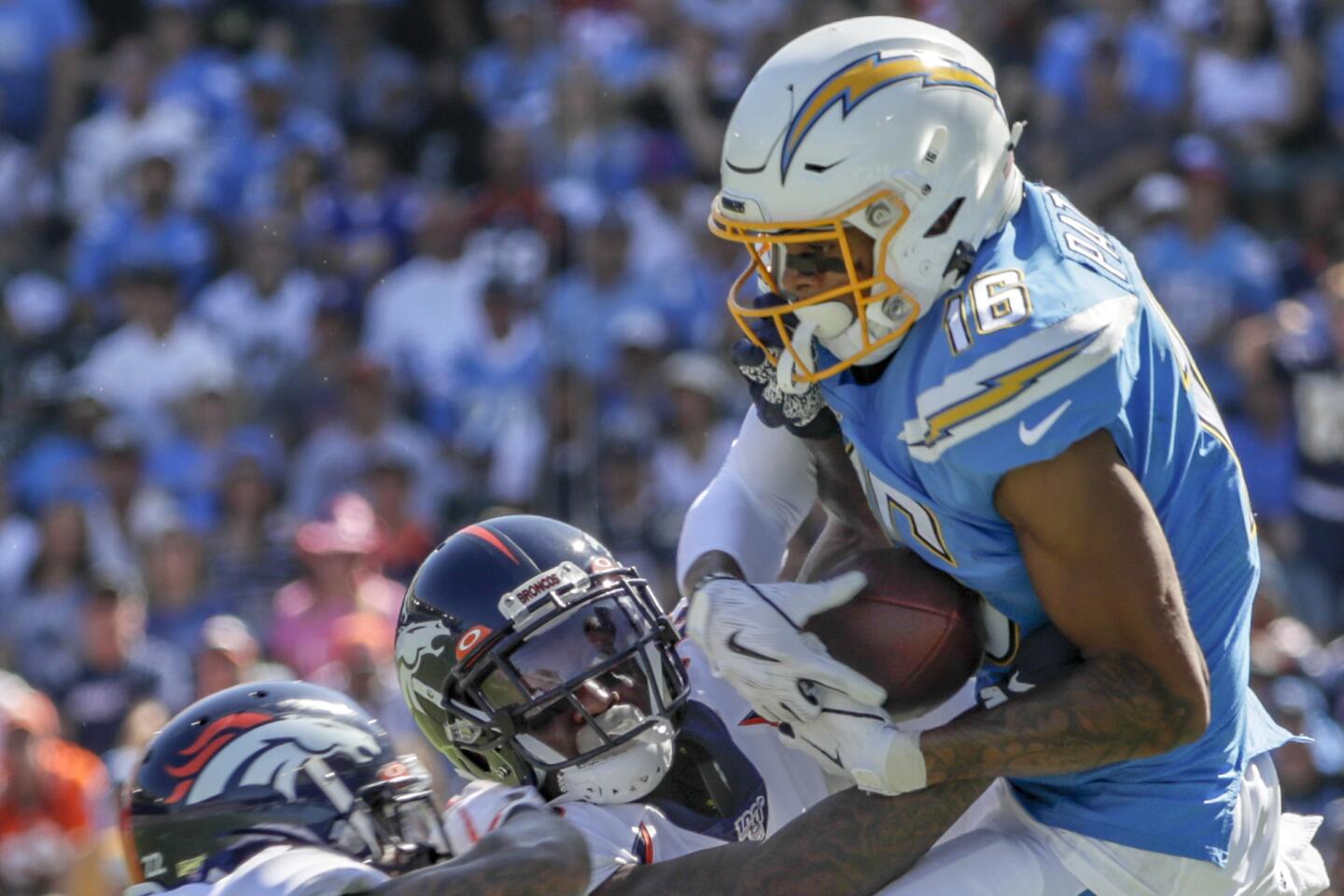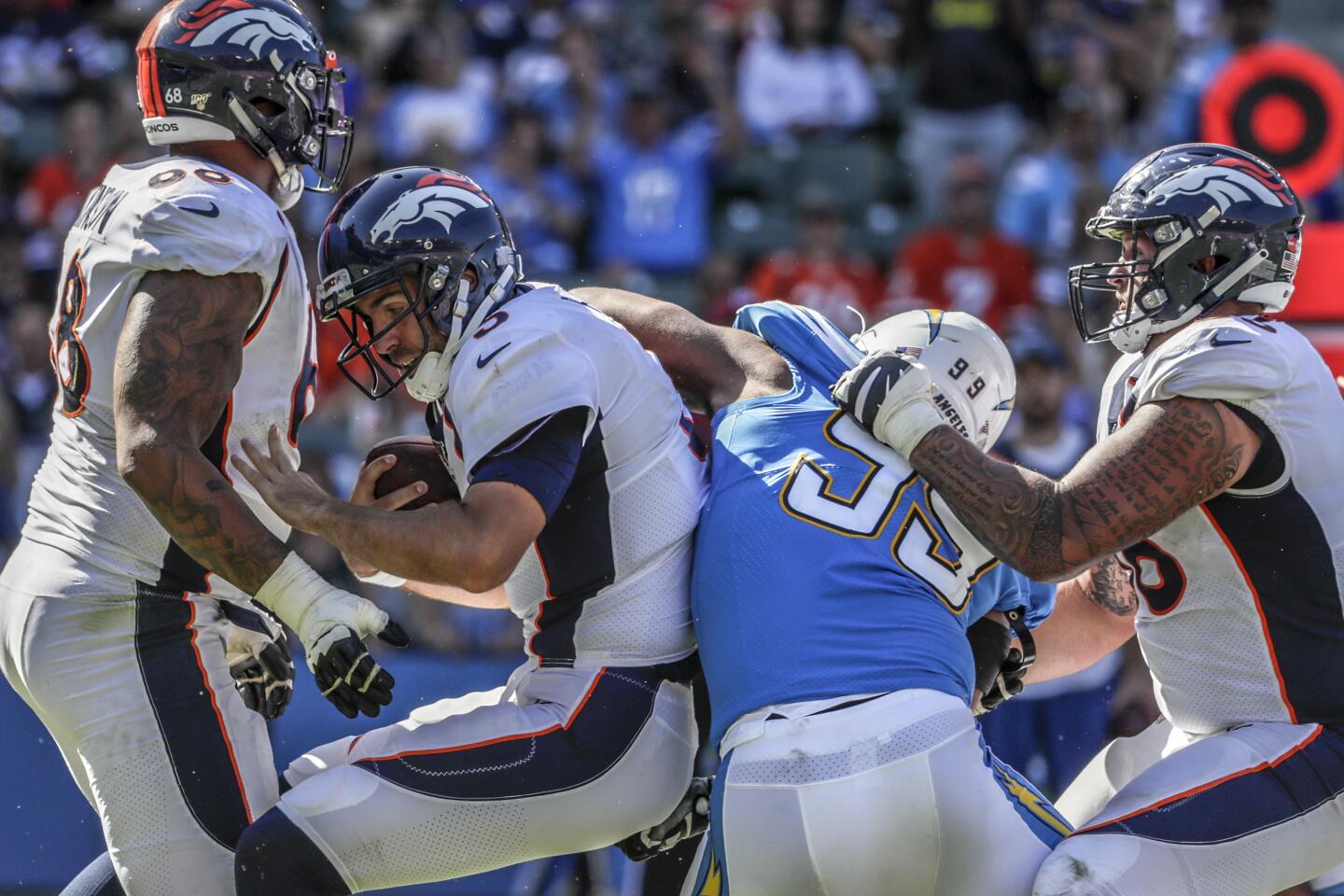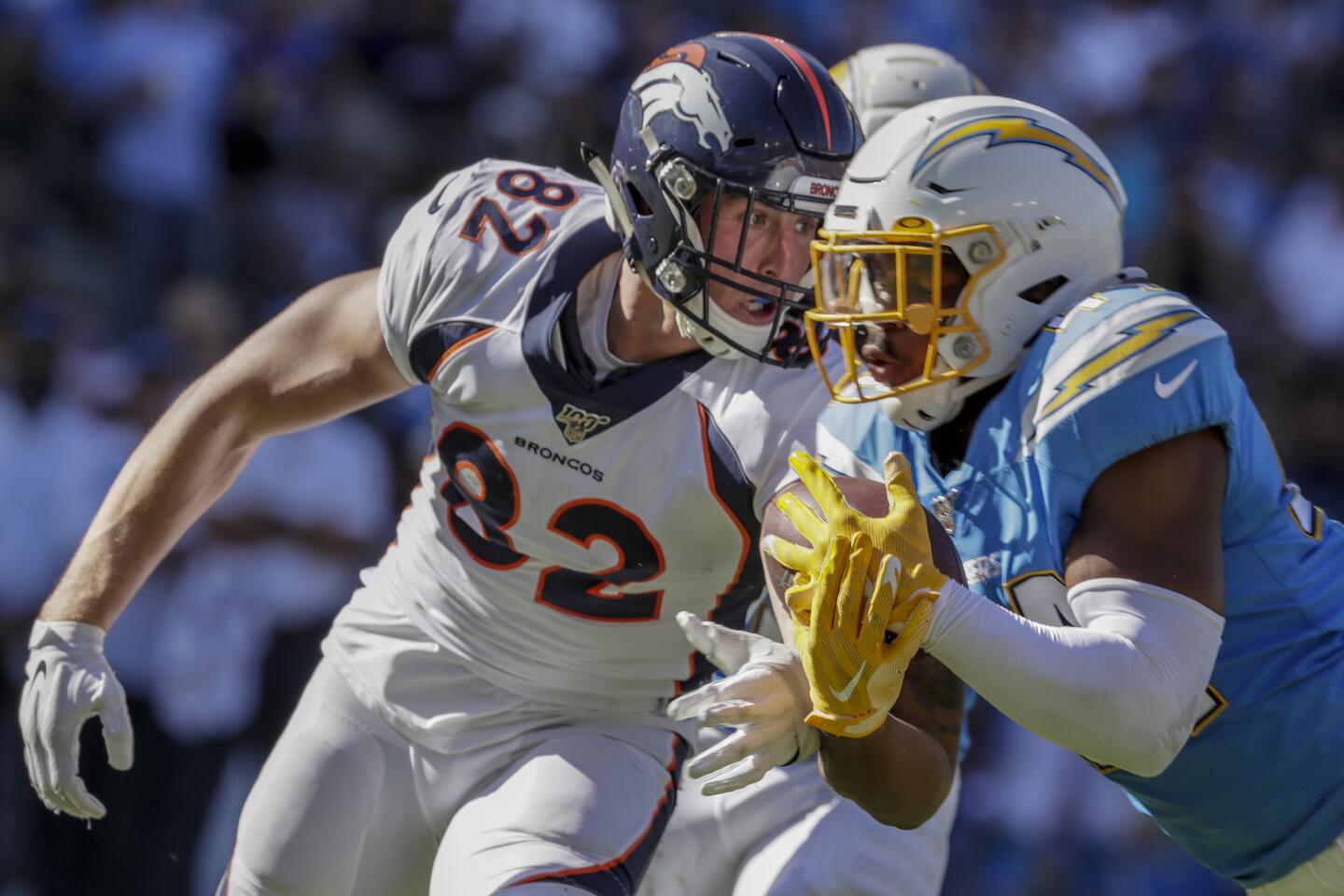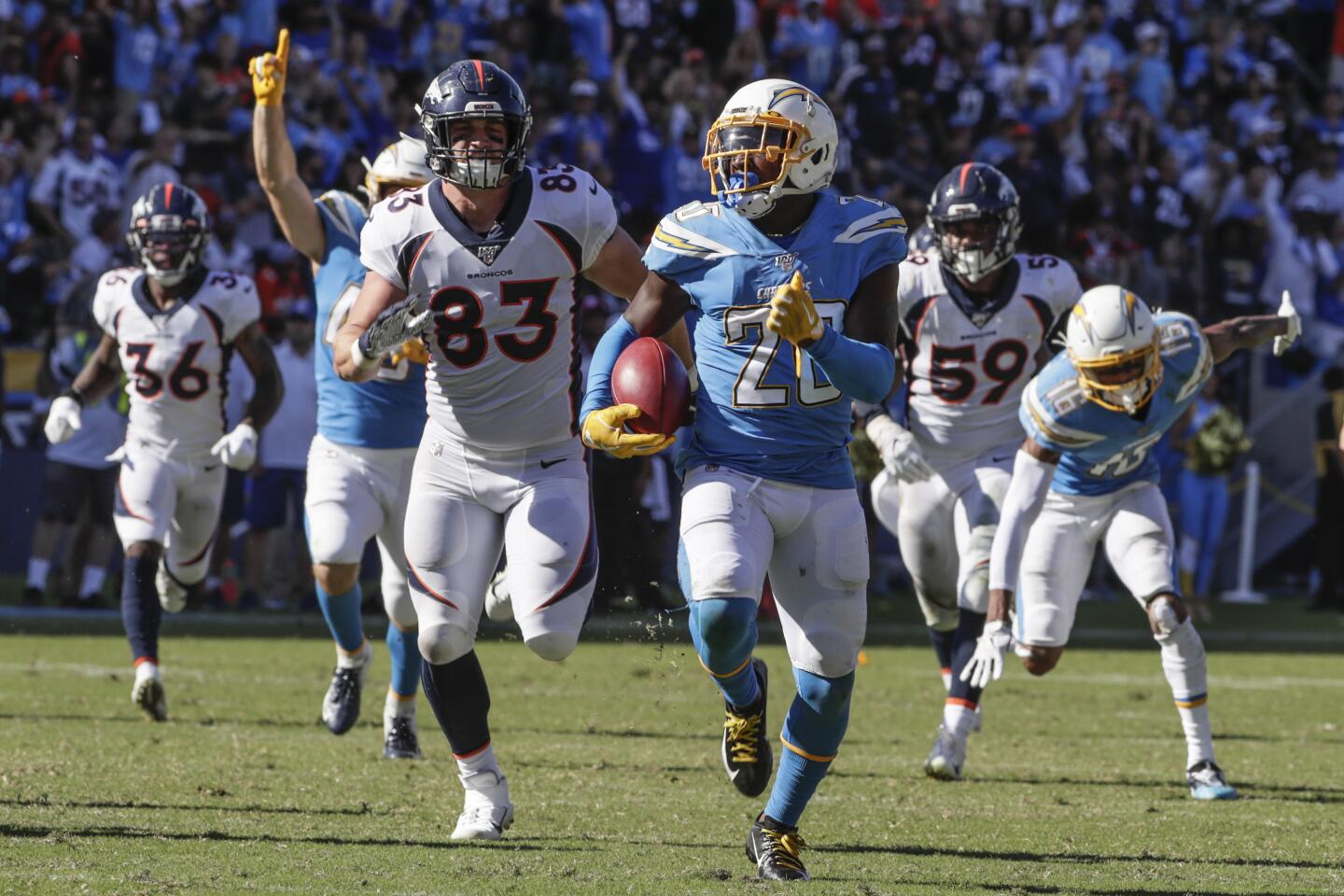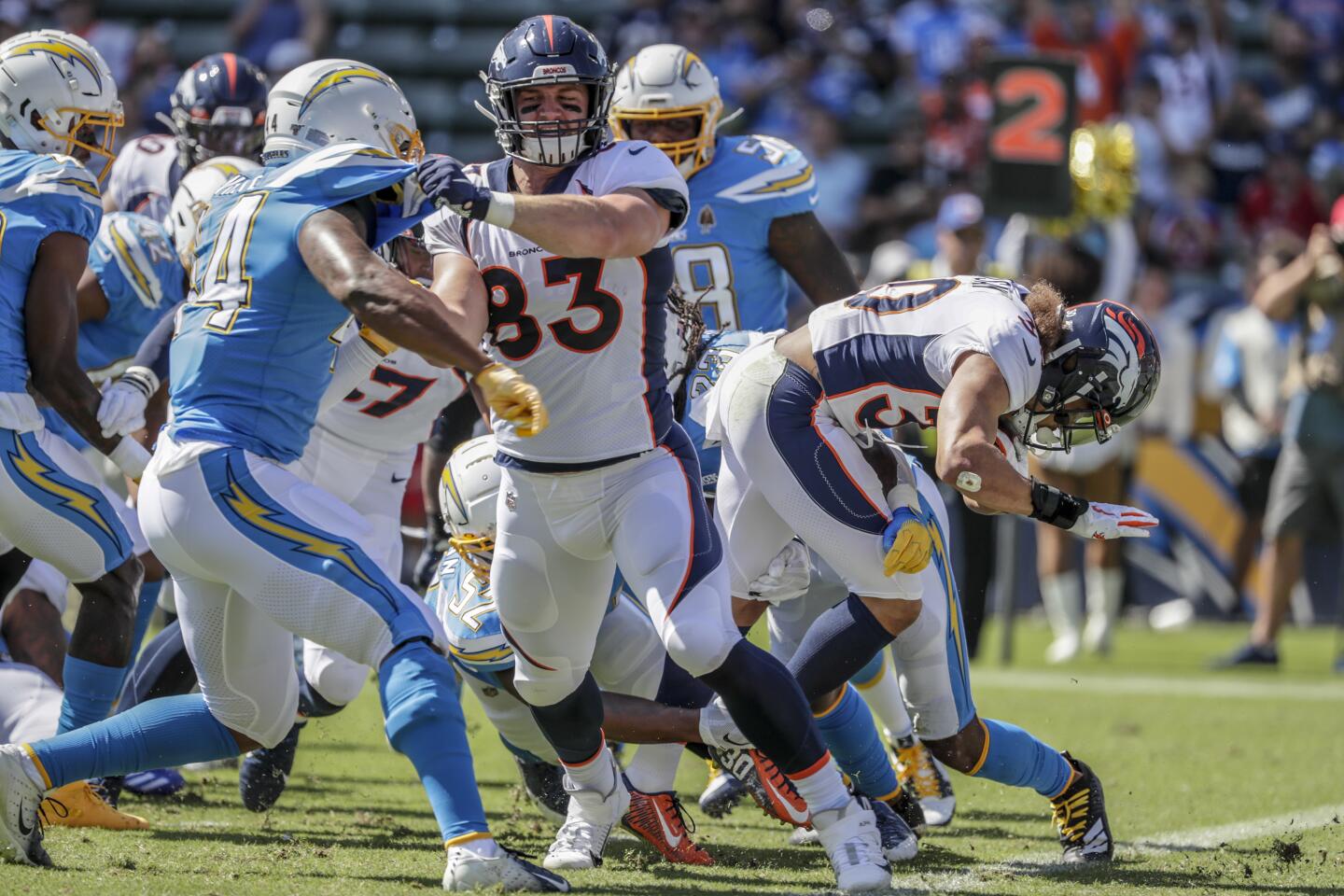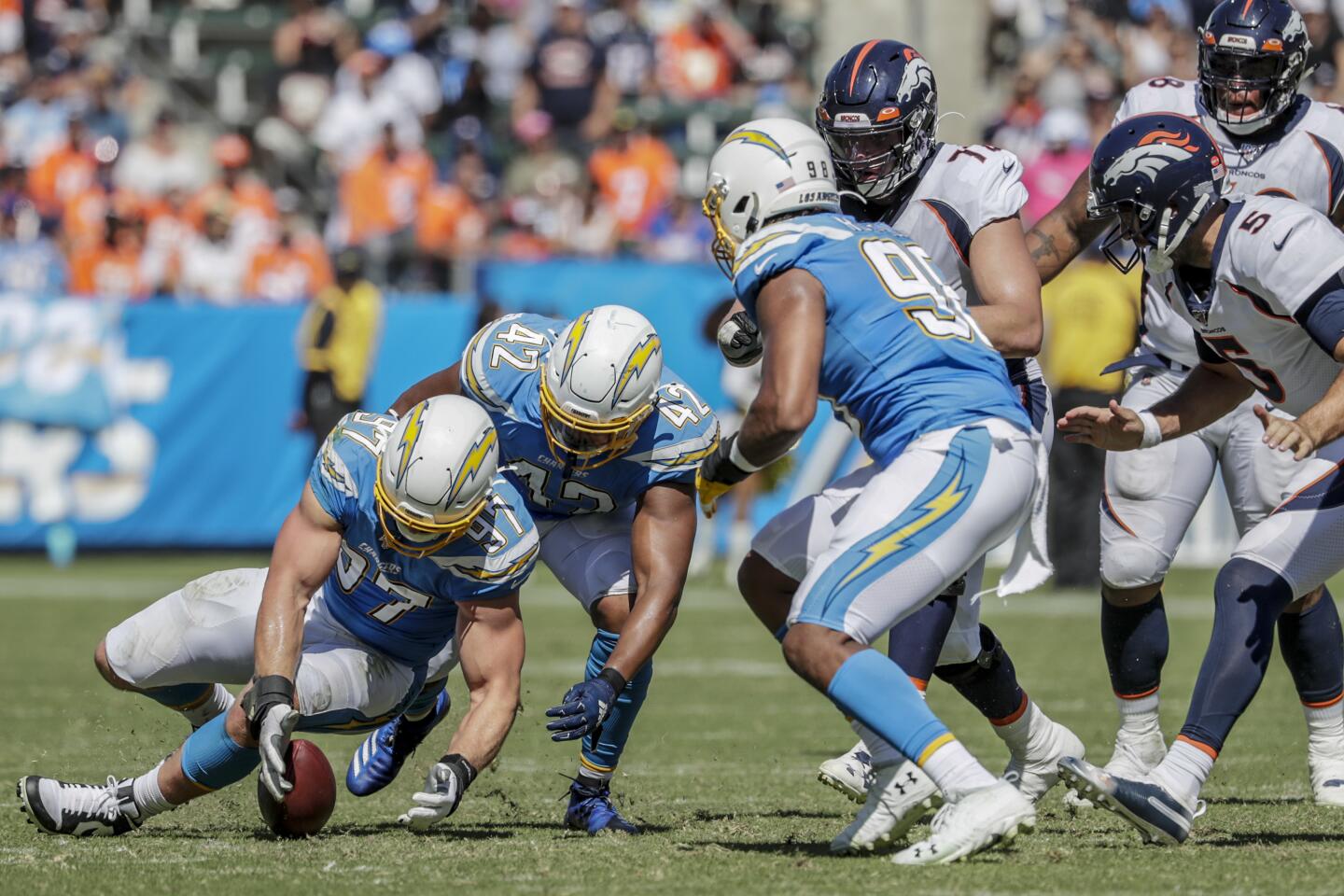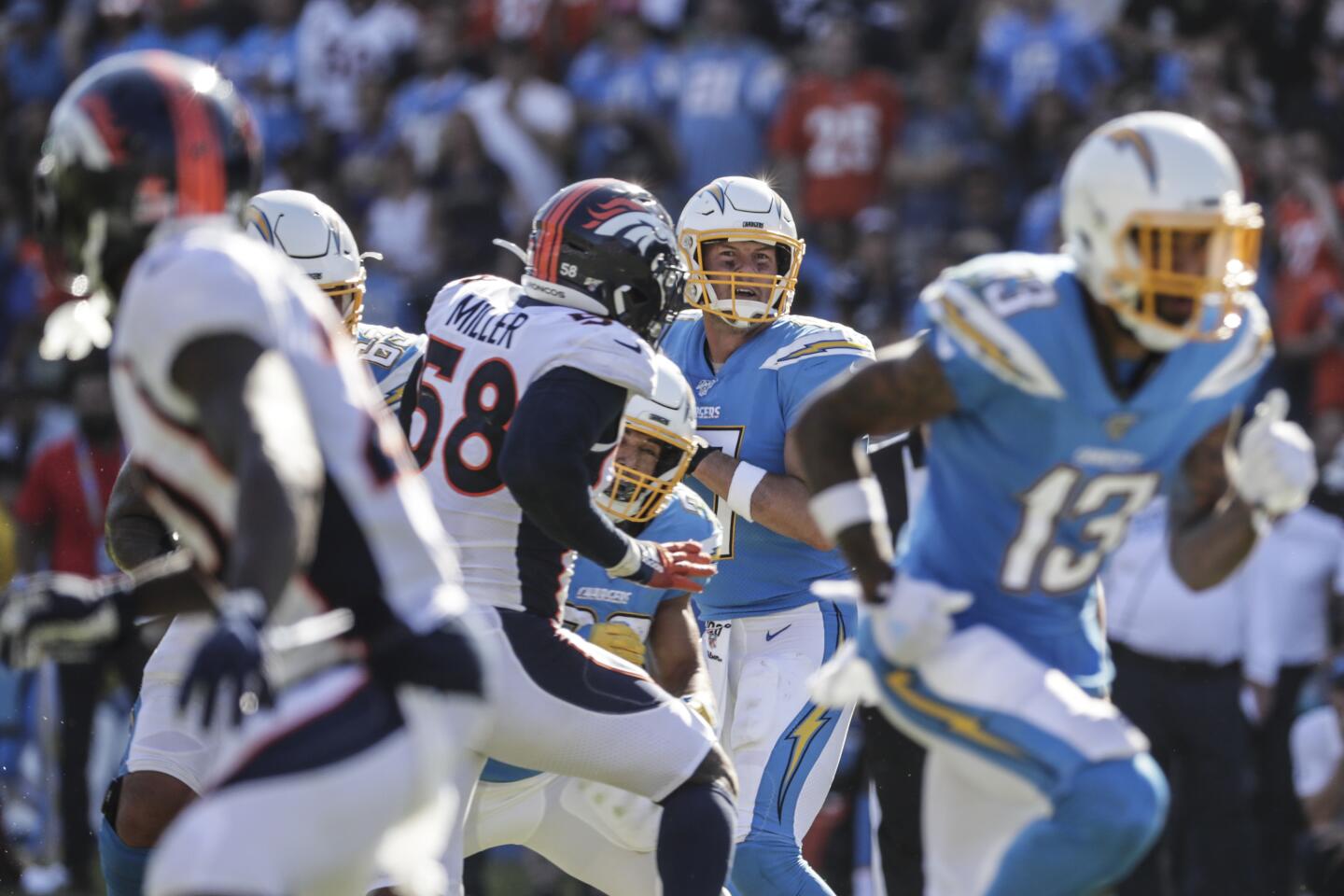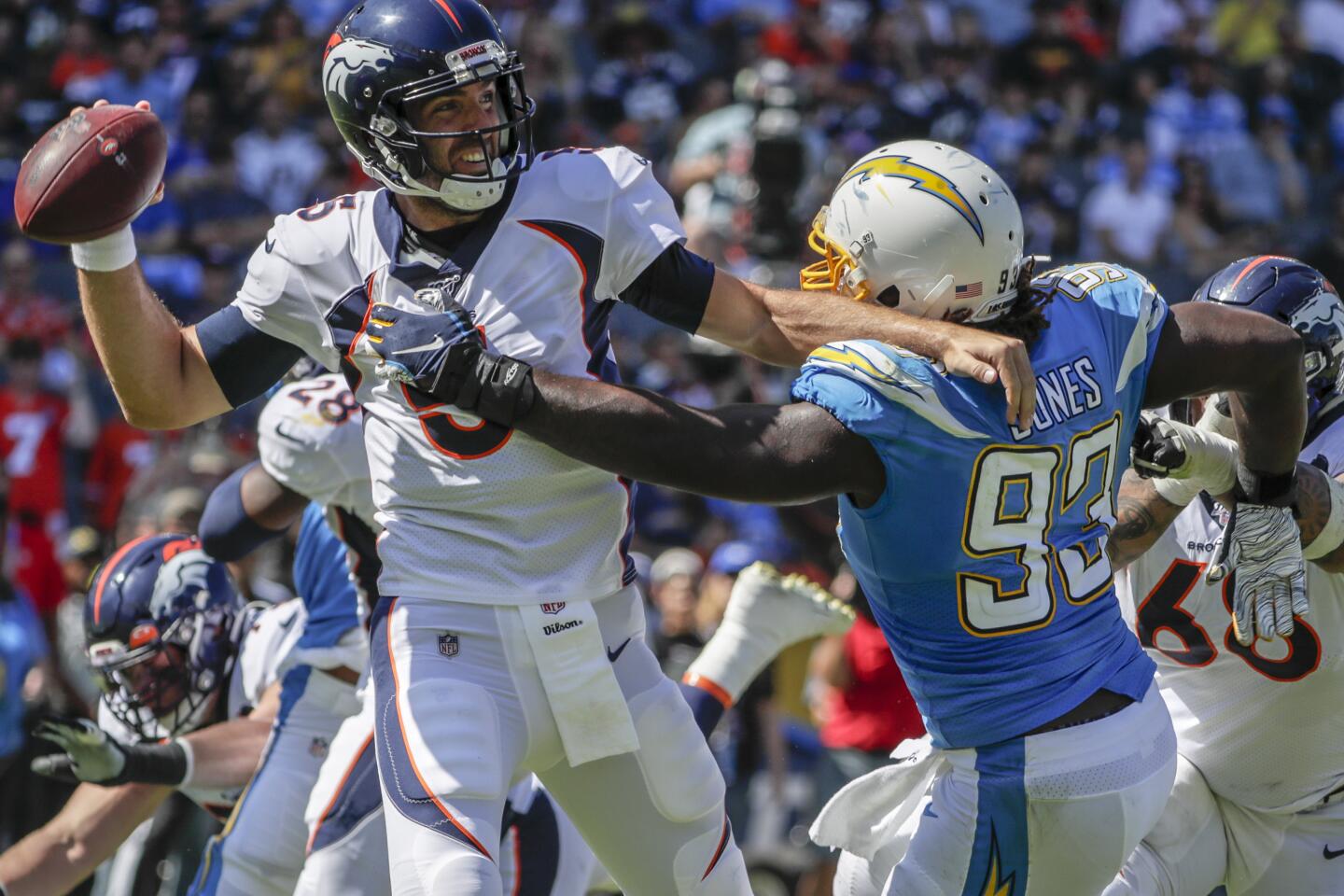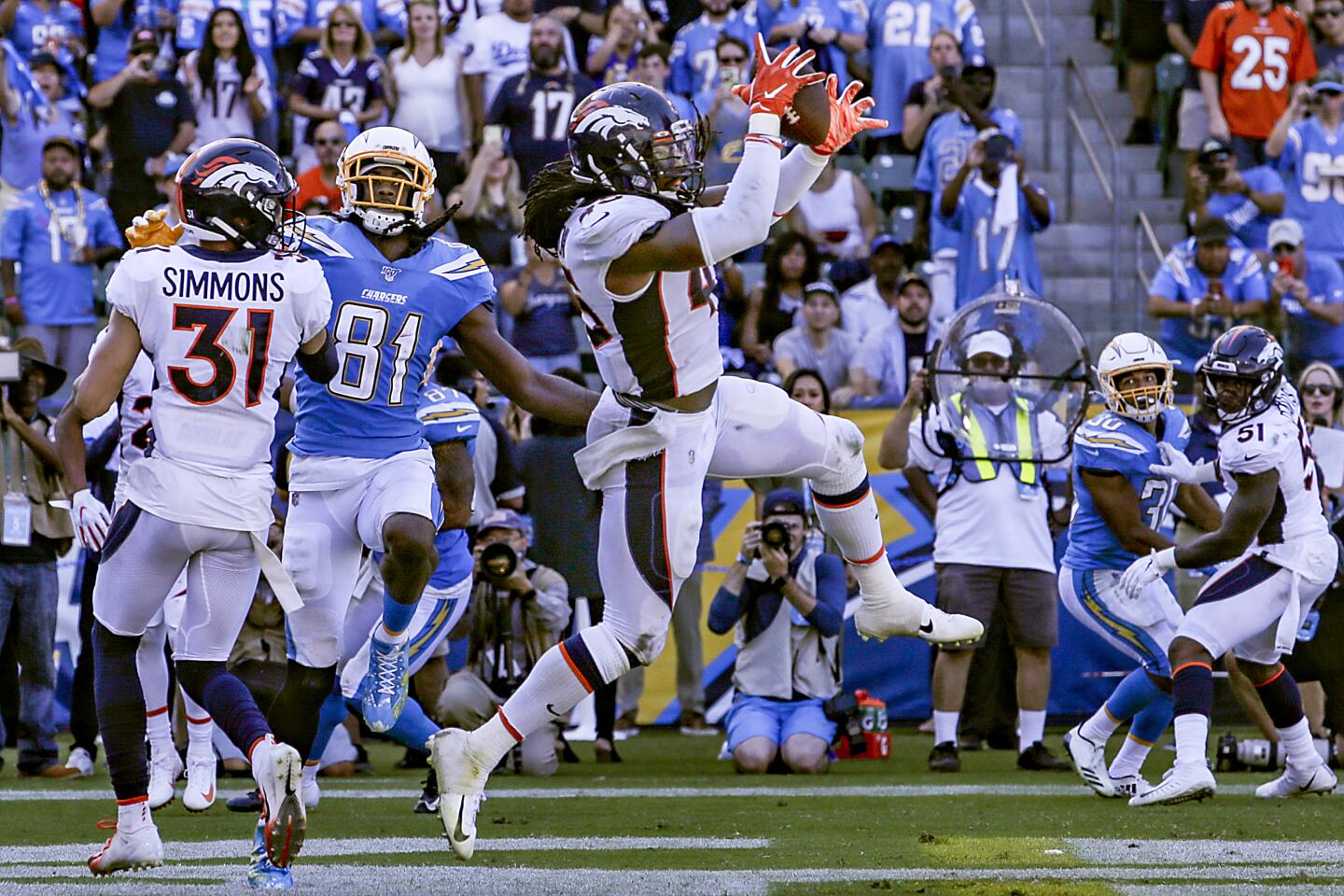Chargers’ Philip Rivers had one of the worst games of his career against the Broncos
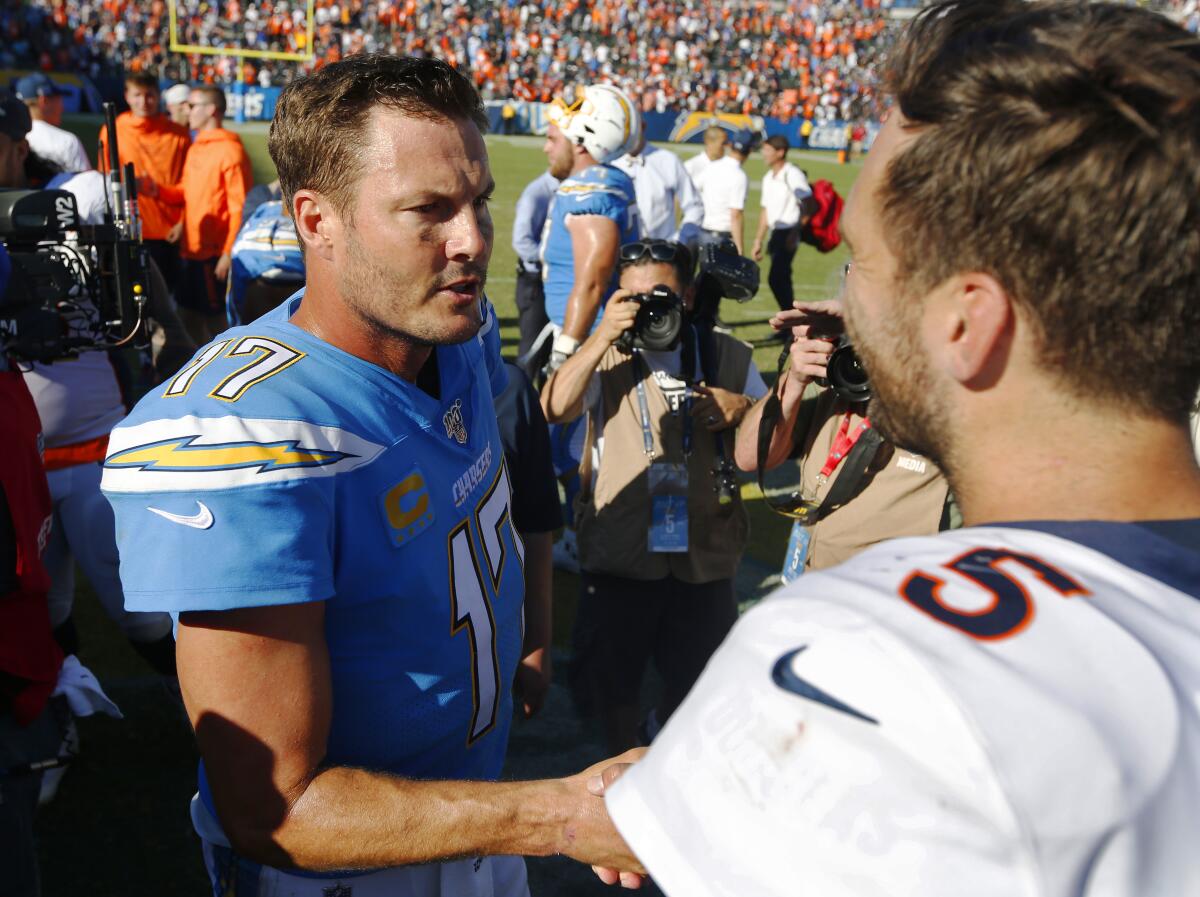
- Share via
By at least one measure, Philip Rivers on Sunday had a game that was among the least productive of his 16-year career.
His 48 passes against Denver, 32 of which were completed, resulted in gains of 211 yards, an average of 4.4 yards per throw.
A starter since 2006, Rivers has finished only four games with a worse yards-per-pass number, and each of those came a long time ago. The most recent occurred Nov. 11, 2007, when he was 13 for 24 for 104 yards in a victory over Indianapolis. His career mark for yards per pass is 7.8.
“We did not play our best game on the offensive side of the ball,” coach Anthony Lynn said Monday. “Yes, Denver did have something to say about that.”
The Broncos designed their defense to prevent big plays, and the Chargers’ longest gain from scrimmage was a 20-yard Rivers completion to Mike Williams. Otherwise, Denver’s defensive backs kept everything in front of them and limited the Chargers’ chances to stretch the field.
“We wanted to take some shots, but they weren’t going to give it to us,” Rivers said after the 20-13 loss. “We had a few opportunities … but they did a great job.”
Veteran Chargers quarterback Philip Rivers has been in this boat before, another slow start at 2-3, and knows playoff chances hinge on a fast recovery.
More often, Rivers was left to dump the ball off to his running backs, hoping one of them could force a missed tackle and produce a big gain. Almost half his passes — 23 of the 48 — were directed at backs.
That plan failed to generate much explosiveness; Austin Ekeler’s 17-yard pick-up was the longest of the bunch.
“That’s one of the things Phil will do,” Lynn said. “Phil will take what the defense gives you.” Asked why the strategy didn’t work Sunday as well as it has in past games, Lynn said, “The coverage was a little tighter.”
The Broncos also tried to eliminate Keenan Allen as much as possible and succeeded. He had four receptions for 18 yards.
This came after a month in which Allen ripped up opposing secondaries. He was targeted only six times Sunday, and 11 times the past two games, after averaging 14 targets the first three weeks.
“They were doubling Keenan,” Lynn said. “They knew the guy they had to stop. But there were times when we didn’t get the ball to him, as well. That’s play-calling. That’s execution. That’s all those.”
Slow start for defense
Given the way the offense struggled, the Chargers were doomed before the game was 10 minutes old.
The Broncos scored their only touchdowns on their first two possessions. They amassed 156 yards on those drives and 194 the rest of the day. They had seven first downs in the first 10 minutes and eight over the next 50 minutes.
“Our defense did start slow,” Lynn said. “But if you look at what they did after those first two drives. … They gave the offense seven possessions in the second half, created some turnovers, kept them to 20 points.
“I think anytime our defense is going to hold somebody to 19, 20 points, then we should win the football game.”
Lynn specifically noted the play of edge rusher Uchenna Nwosu, who had seven tackles, a sack and a forced fumble while filling in for the injured Melvin Ingram.
“‘Chenna played really well,” he said. “That was one of the bright spots.”
Ingram missed the game because of a hamstring injury. He’ll be further evaluated this week. Lynn is unsure whether Ingram will be ready to return against Pittsburgh on Sunday night at Dignity Health Sports Park.
One area where the Chargers struggled defensively versus Denver was stopping the run. The Broncos finished with 191 yards on the ground and a six-yard average per rush.
Phillip Lindsay became the second 100-yard back against the Chargers this season, joining Indianapolis’ Marlon Mack. He had 114 yards in 15 carries.
“The run defense wasn’t very good,” Lynn said. “It’s just that simple. … That hurt us. That team played more physical than us, without a doubt.
“They blocked a kick. They ran the ball better. And they stopped the run. That’s physical football.”
Mike Pouncey injury
Lynn had no update on center Mike Pouncey, who left the game because of a neck injury.
“I know the doctors are taking a look at him and we’ll see,” Lynn said.
In Pouncey’s absence, Dan Feeney moved from left guard to center and Forrest Lamp took over at left guard.
Williams released
The Chargers released cornerback Trevor Williams, who was on injured reserve because of a quadriceps injury.
Williams started 15 games in 2017 and seven last season but struggled to stay healthy and lost his job to Michael Davis.
More to Read
Go beyond the scoreboard
Get the latest on L.A.'s teams in the daily Sports Report newsletter.
You may occasionally receive promotional content from the Los Angeles Times.

